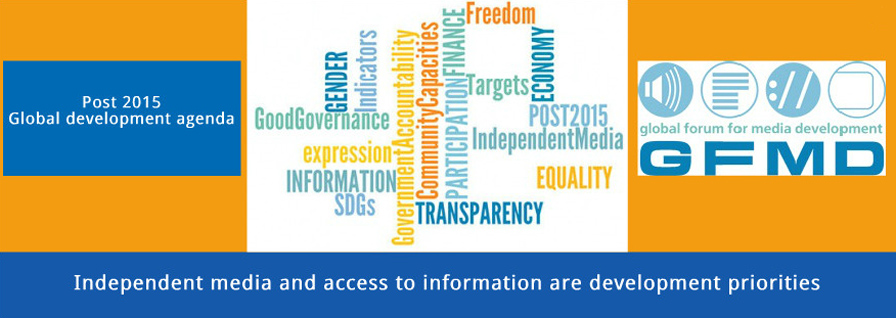 The Global Investigative Journalism Network has joined the Global Forum for Media Development, a membership network of more than 200 media assistance organizations active in 80 countries. The Brussels-based GFMD works to make independent media development an integral part of international development strategies, much as education and health care are today.
The Global Investigative Journalism Network has joined the Global Forum for Media Development, a membership network of more than 200 media assistance organizations active in 80 countries. The Brussels-based GFMD works to make independent media development an integral part of international development strategies, much as education and health care are today.
The GFMD’s basic values are support for free expression, media freedom and independent journalism. Among its members are BBC Media Action, Deutsche-Welle Akademie, Free Press Unlimited, and The Guardian Foundation, as well as such GIJN members as the International Center for Journalists, International Media Support, IREX, and Ukraine’s Regional Press Development Institute.
“At a time when a free press is under assault around the world, it’s never been more important to join together and ensure that independent, watchdog media continue to grow,” said GIJN Executive Director David Kaplan. “GFMD can be a critical ally in GIJN’s work spreading quality investigative journalism around the world. At the same time, we hope that GIJN can contribute to GFMD by helping represent a critical constituency — investigative journalists — in the media development community.”
Many GIJN members, particularly in developing and transitioning countries, receive international development funds, and they have been a key force in spreading the practice of quality investigative journalism around the world. But much more can be done in the field. A 2013 study by the Center for International Media Assistance estimated that investigative reporting, despite its high impact, receives only 2% of media development funding.

Source: Global Investigative Journalism, Center for International Media Assistance, 2013
Free Expression as UN Development Goal
Among GFMD’s current priorities is working to ensure that access to information, independent media, and freedom of expression are included in the UN’s post-2015 development agenda. The UN’s eight Millenium Development Goals – agreed to in 2000 by UN member states — comprise an ambitious agenda to improve quality of life around the world, focusing on such issues as poverty, HIV/AIDS, gender equality, and education. Major progress has been made, but that blueprint expires in 2015. The UN is now at work with governments, civil society groups, and others on a new post-2015 agenda, and GFMD and other groups are striving to include independent media and free expression in the global goals for the first time.
Adding free expression and information access to the goals has not been an easy task, participants say, but there’s good news on this fight: After losing a round, access to information was reinstated in the working document now headed to the UN Secretary General. Among those who helped get it back on the agenda this week were delegations from Mexico, Guatemala, Timor Leste, and Benin.
The GFMD has put together a tool kit and resource page on what you can do to help. You can also follow GFMD on Facebook and Twitter.

